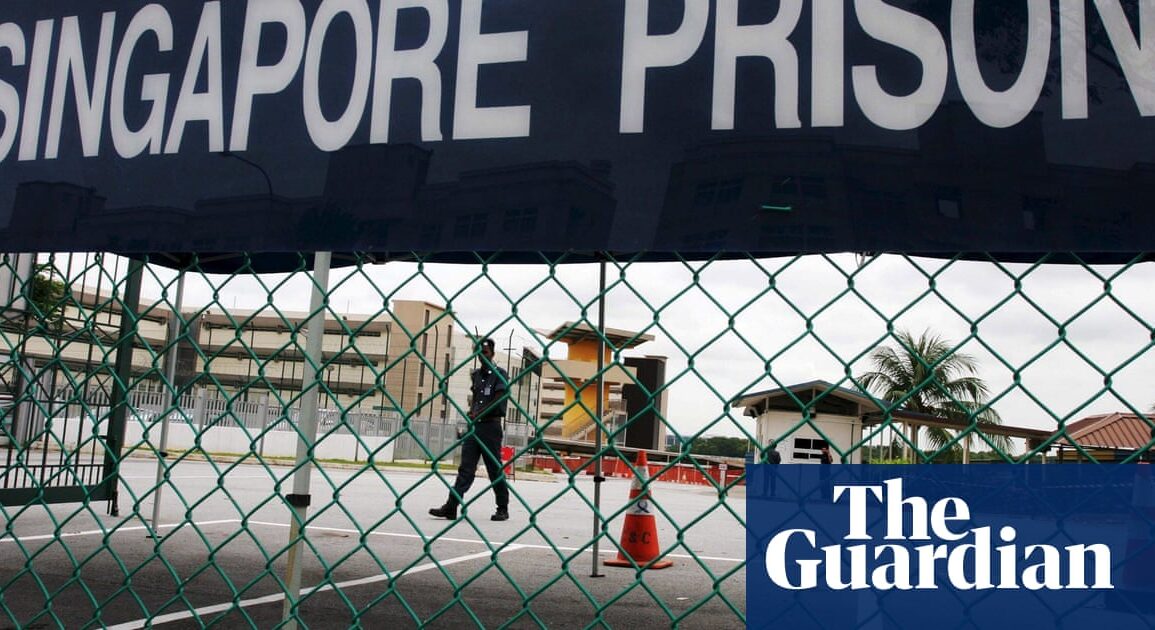
Singapore has hanged Saridewi Djamani, the first woman to be executed in the city state in almost 20 years, despite an outcry from human rights groups.
The 45-year-old Singaporean national, who had been convicted of drug smuggling, was executed early on Friday, according to the Central Narcotics Bureau (CNB).
Saridewi was sentenced to death in 2018 for trafficking around 30 grams (1.06 ounces) of heroin. She is believed to be the first woman to be executed in Singapore since 2004, when 36-year-old hairdresser Yen May Woen was hanged for drug trafficking, according to the local rights group Transformative Justice Collective.
Saridewi had argued that she had not been able to give accurate statements to the police because she had been suffering from drug withdrawal at the time. However, this was rejected by a high court judge, who found Saridewi had “at most been suffering from mild to moderate methamphetamine withdrawal during the statement-taking period”, and that this had not impaired her ability to give statements.
The Global Commission on Drug Policy, as well as the International Federation for Human Rights and Amnesty International had urged the Singaporean government to halt the execution.
Saridewi is the second person to be executed this week, and the 15th prisoner to be killed since the government resumed executions in March 2022. Executions were paused for two years during the pandemic, but since then the city state has carried out an average of one execution per month, say campaigners.
On Wednesday, Mohd Aziz bin Hussain, a 56-year-old Singaporean Malay man, was also killed. He had also been convicted on drugs-related charges.
Amnesty International’s death penalty expert Chiara Sangiorgio said this week has “cast a harsh and tragic spotlight on the complete lack of death penalty reform in Singapore.”
Amnesty has called on governments, the United Nations Office on Drugs and Crime (UNODC), and the International Narcotics Control Board (INCB) to “increase pressure on Singapore to end its highly punitive approach to drug control policies.”
Sinapore’s government maintains that the death penalty is an effective way of preventing drug-related crime, that it keeps the city state safe and is widely supported by the public. It also says its judicial processes are fair.
In a statement, the CNB said: “Saridewi was accorded full due process under the law, and was represented by legal counsel throughout the process.”
Campaigners dispute that it is a uniquely effective deterrent and say the punishment is disproportionate and ends up targeting the most vulnerable and marginalised. They have also warned prisoners are increasingly representing themselves after their appeals because they cannot access lawyers.
“Imposing the death penalty for drug-related offences is not only an exceptionally harsh and disproportionate punishment, but also violates international human rights law,” Global Commission on Drug Policy said in a statement.
Under international standards, the death penalty should be used only in the most serious crimes, such as intentional killing, campaigners say.
According to Transformative Justice Collective (TJC), which advocates for reform of Singapore’s criminal justice system, another prisoner has been given an execution notice for Thursday next week.
The Singaporean Malay man, a former delivery driver, was convicted in 2019 of trafficking around 50g of heroin. He maintained throughout his trial and appeal that he had believed he was delivering contraband cigarettes on behalf of a friend he had owed money, the group said. His appeal was dismissed last year.
Executions notices are normally issued to prisoners about a week before they will be killed. In the run-up to their execution they are allowed to have daily visitors, but are kept behind a glass window and not allowed physical contact with their loved ones.
An optional photo shoot, intended to provide a memory for families, is also held in the days before the inmate is killed. Relatives are allowed to bring special clothes for the prisoner to wear.
In a statement on Friday, the CNB said: “Capital punishment is used only for the most serious crimes, such as the trafficking of significant quantities of drugs which cause very serious harm, not just to individual drug abusers, but also to their families and the wider society. Capital punishment is part of Singapore’s comprehensive harm prevention strategy which targets both drug demand and supply.”
This post was originally published on this site be sure to check out more of their content.









